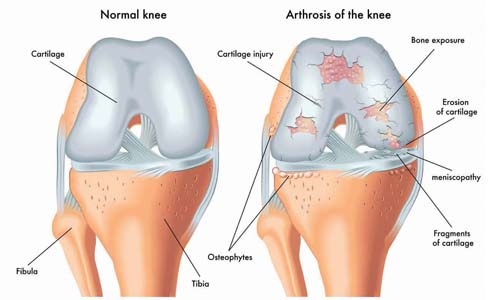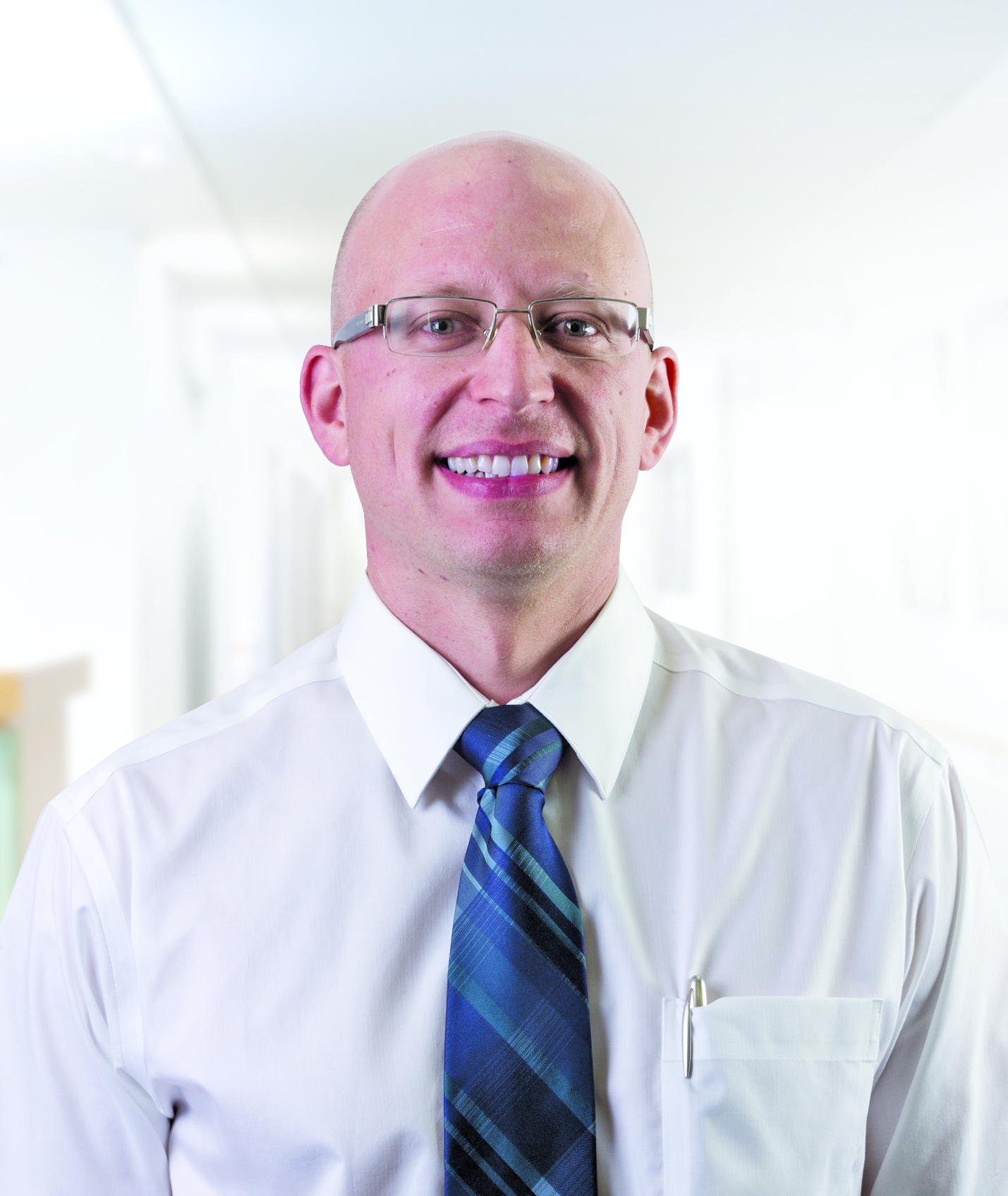Osteoarthritis of the Knee
What is osteoarthritis of the knee?
Osteoarthritis of the knee is the gradual wearing away of the cartilage in the knee joint that leads to painful friction and touching of the bones in the knee. It often exists undetected for years before it causes problems, usually above the age of 50 years. Osteoarthritis is one of the most common sources of knee pain. Together with osteoarthritis of the hip it is the most common form of arthritis in humans. In Germany, an estimated 75 percent of all people over the age of 50 show signs of knee osteoarthritis. Women are much more frequently affected by knee osteoarthritis than men. Knee osteoarthritis is the most common reason for the implantation of a knee prosthesis. There are about 165,000 total knee replacement surgeries done per year in Germany.
What are the reasons for osteoarthritis?
Knee osteoarthritis can have various reasons. Generally, two different forms are differentiated, the primary and secondary osteoarthritis. The primary one occurs as a result of age and stress-related wear and tear with no apparent cause or reason. The secondary knee osteoarthritis is usually the result of external factors such as accidents, sports injuries, existing medical conditions, malalignment, overloads and inflammatory joint diseases. Risk factors for the development of osteoarthritis include older age, excessive or incorrect stress on knees, obesity and lack of exercise, congenital or injury-related deformity of the knee (such as knock-knees or bow legs) and longer existing instability of the knee joint (e.g. ACL tear). In addition, rheumatic or metabolic disorders and bone deformities due to bone diseases (e.g. osteoporosis) can cause the formation of osteoarthritis in the knee.
What are symptoms of osteoarthritis?
Typical symptoms of knee osteoarthritis are persistent knee pain in rest and during activity and reduced range of motion of the knee joint. It goes along with joint stiffness, swelling and a feeling of heaviness. Typical is the pain in the morning or when getting up after sitting for a long time. Some people experience an unsteady feeling that the joint may “give way”.
What is the treatment for osteoarthritis?
Osteoarthritis is a progressing, incurable disease. Luckily this doesn’t mean we cannot do something about it. The treatment aims primarily to relieve the symptoms, restore and increase mobility and slow down the process of degeneration. There are both, conservative and surgical methods for the treatment of osteoarthritis available.
Each patient is unique and some will respond to certain treatments better than others. Perhaps the most important, though not the easiest treatment option is weight loss. Painful joints will be less sensitive if they have less weight to carry. It may be necessary to limit certain activities to avoid putting stress on a painful knee. If exercise is causing pain, learning new exercise methods, like hydro therapy, may be helpful. Physical therapy is an other very important method of treatment particularly for knee problems. A physical therapy program can reduce pain, increase strength, restore joint mobility and function and help patients return to their normal life. Non-steroidal anti-inflammatory medications (like Ibuprofen, Diclofenac, etc.) are often prescribed to reduce pain and inflammation. A little more invasive are injections in the knee joint. Cortisone, PRP (platelet rich plasma) and ACT (autologous cytokine therapy) injections are powerful medications that may be used to treat inflammation and knee pain. Furthermore, we see very good results with hyaluronic acid injections. They help to lubricate the joint and relieve pain.
If conservative treatments fail and the patients have great difficulty with simple daily life activities such as walking or climbing stairs and the quality of their life is going down, then total knee replacement may be an option. In this routine procedure, the cartilage and bone surface is removed and resurfaced with a special metal and polyethylene implant.
Check out our Instagram account @germanorthobahrain for more helpful information.
Dr. Maik Priester
Orthopaedic Consultan Knee and shoulder surgeon German Orthopaedic Hospital
Related Posts


